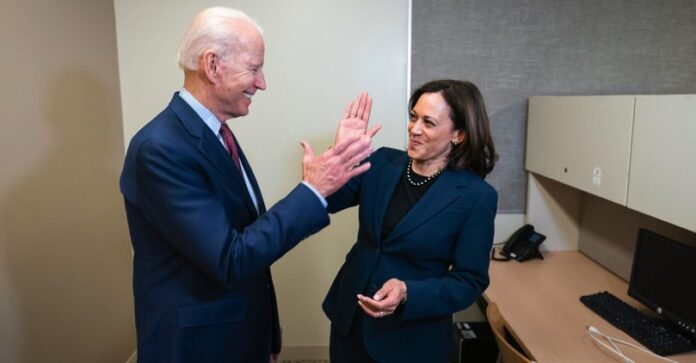
By Stacy M. Brown, NNPA Newswire Senior National Correspondent
President Joe Biden and his twice-impeached and four-times indicted predecessor, Donald Trump, emerged victorious on Super Tuesday, wrapping up their respective party nominations and setting up a rematch of the volatile 2020 election.
More than a dozen states participated in primaries and caucuses, constituting the most significant nominating race day, and shifting the focus from the one-by-one march through early-voting states.
Despite signs of potential weaknesses in their election strategies, both Biden and Trump faced challenges. Numerous progressives, reportedly disillusioned with Biden, opted for the “uncommitted” option in places like Minnesota and Michigan, while college-educated suburbanites leaned towards alternatives to Trump. While the 15 states in contention didn’t officially provide Trump with enough delegates to secure the GOP nomination for a third consecutive time, he closed the gap, leaving little room for his main rival, Nikki Haley, who suspended her campaign on the morning after. Haley and Biden earned victories in the District of Columbia’s primaries held the Sunday before Super Tuesday.
The latest delegate estimate revealed Trump’s substantial gain of 617 delegates on Tuesday, propelling his overall count to 893, or 92% of those awarded, putting him on the brink of the 1,215 delegates required for clinching the GOP nomination. In contrast, Haley lagged significantly with only 66 delegates.
“They call it Super Tuesday for a reason,” declared Trump, whom a civil jury twice sanctioned for sexually assaulting a writer and a New York judge found guilty of massive business fraud. “This is a big one,” continued Trump, who was ordered to pay nearly $500 million for his New York crimes and $90 million for the sexual assault guilty finding. “And they tell me, the pundits and otherwise, that there’s never been one like this.”
Despite facing challenging headlines and low approval ratings, Biden maintained his dominance on Super Tuesday, securing approximately 80% of the vote, while Trump struggled to reach that threshold. Although Haley posed a more formidable challenge, Biden retained solid support from his party’s rank-and-file.
Looking ahead to the general election in November, Trump faces potential headwinds like those he encounters now, including four criminal trials that could potentially land him an 800-year prison sentence. Conversely, Biden has room to win over intra-party detractors, especially those critical of his handling of Israel’s conflict in Gaza, where the administration has increased its call for a ceasefire.
Meanwhile, in California, the battle for the U.S. Senate seat left vacant after Dianne Feinstein’s death intensified. Rep. Adam Schiff will face former baseball star Steve Garvey, a Republican and Trump supporter. Garvey secured a spot in the top two alongside Democrat Schiff, outpacing Democratic Reps. Barbara Lee and Katie Porter. Sen. Laphonza Butler, appointed after Feinstein’s demise, had earlier pledged not to run for the seat in 2024.
“We have a clear path to victory,” Biden’s campaign said in a memo circulated late Tuesday. “A significant share of moderate and Haley voters across the country are saying that Trump cannot count on their votes in a general election. The November election will be a very close general election contest like all modern presidential elections are… but, we have a clear path to victory.”


